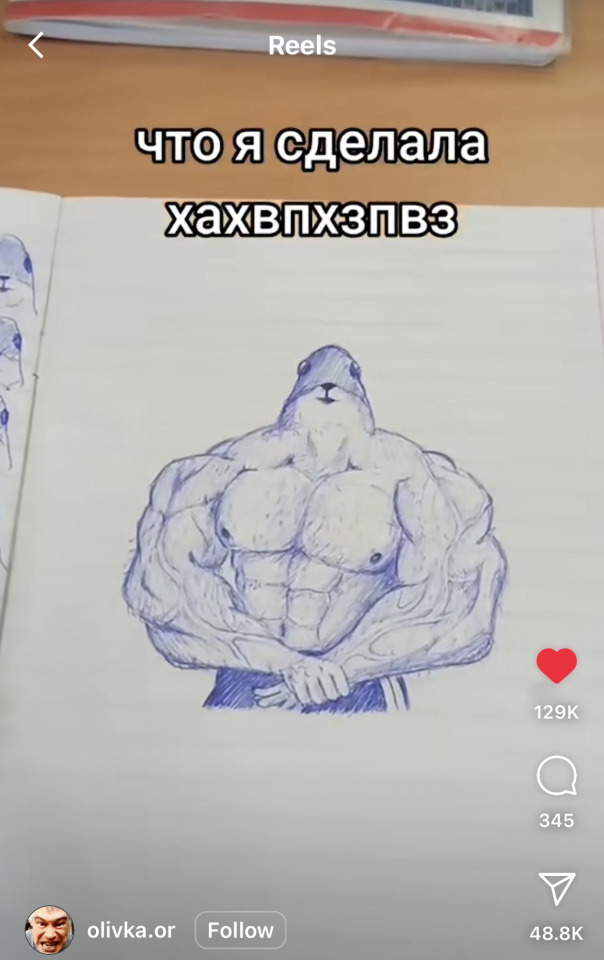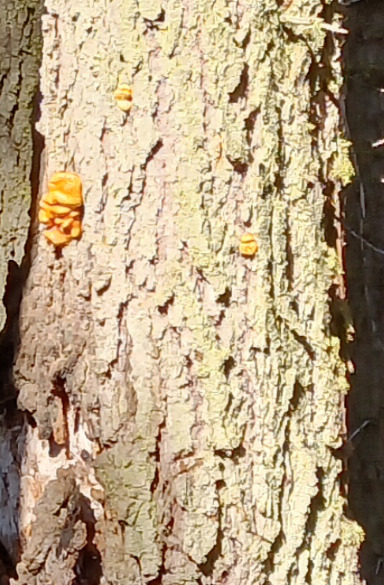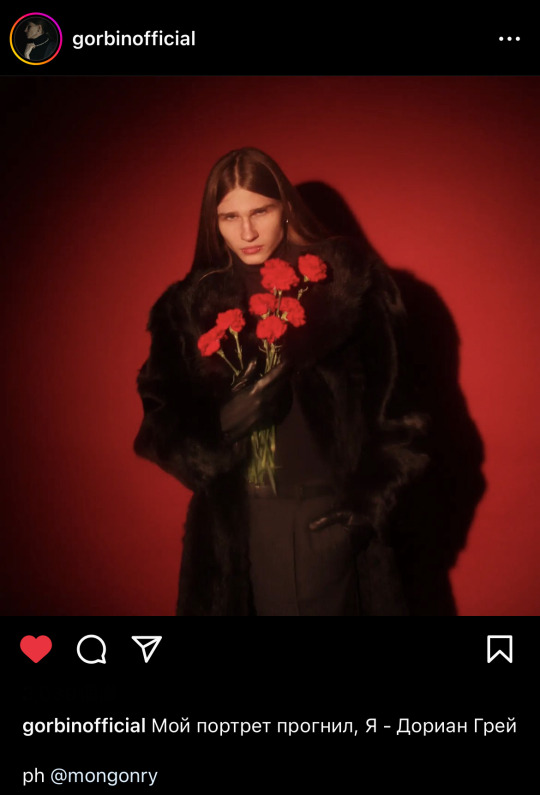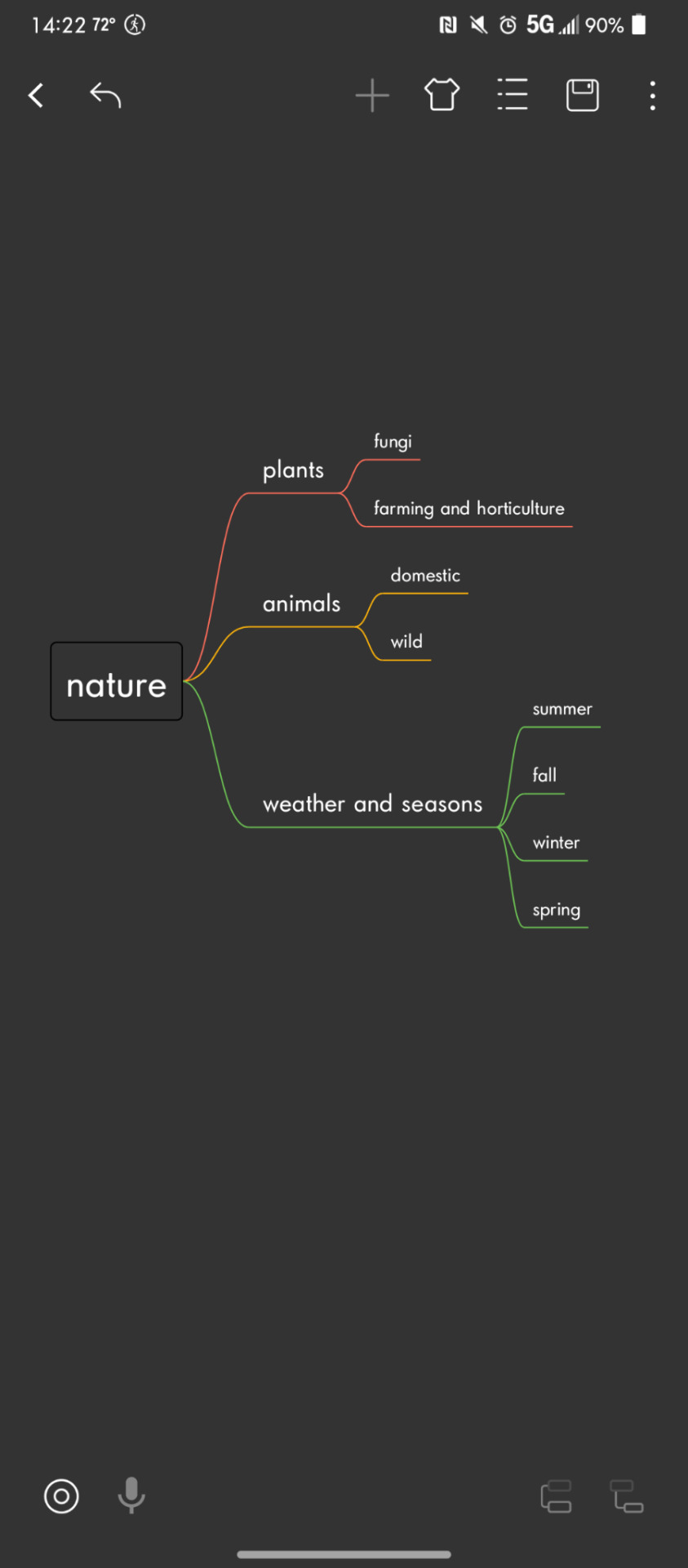#russian vocab
Text
[Russian→English] @olivka.or October 26th 2023 Instagram Reel — Color Coded Translation
Link to original post

—
что я сделала хахвпхзпвз
chto ya sdelala khakhvpkhzpvz
what have I done khakhvpkhzpvz
NOTE: “khakhvpkhzpvz” seems to be keyboard smashing, a stand in for “ha ha ha” or “LOL”
—
Please correct me if I made a mistake
#color coded translation#russian langblr#russian vocab#study russian#russian to english#russian#learn russian#russian language
20 notes
·
View notes
Text
Some vocab from today!!
пещера (сущ. ж.) - cave
чугунный (прил.) - cast iron
нарочно (нареч.) - purposely, deliberately
обрыв (сущ. м.) -cliff, precipice
перебить (гл. св.) - to interrupt
неодобрение (сущ. ср.) - disapproval
крайне (нареч.) - extremely
листва (сущ. ж.) - foliage
завернутый (прич.) - wrapped, covered (in something)
копьё (сущ. ср.) - spear
крюк (сущ. м.) - hook
повод (сущ. м.) - occasion, reason, excuse
схватить (гл. св.) / схватывать (нсв.) - to grab, grasp
#vocab#russian langblr#russian language#langblr#русский язык#russian vocab#just some random stuff#my goal is to learn 1k new words by the time my C1 exam comes around (in about a month)#so I'll be posting a lot of vocab!!#might not do the little grammar info in brackets in the future#pls correct me if I'm wrong about any of these btw gdksgdksh#shrews post
11 notes
·
View notes
Text
Day 32
Расцветать (verb, imperf.) - to bloom
Яблоня (noun, n.) - apple tree
Груша (noun, m.) - pear
Берег (noun, m.) - shore
Заводить (verb, imperf.) - to start/wind up/establish
Сизый - bluish/dove colored
Орёл (noun, m.) - eagle
Беречь (verb, imperf.) - to protect/take care of/save
Девичий (adj.) - girly/maiden
Вслед (adv.) - after/following (smth.)
Боец (noun, m.) - fighter
Пограничье (noun, n.) - borderland
Поплыть (verb, perf.) - to swim
Сменять (verb, imperf.) - to change
Допить (verb, perf.) - to drink up
Дно (noun, n.) - bottom/underworld
Раненый (adj.) - wounded
Высота (noun, f.) height
Оглянуться (verb, perf.) - to look back
Срываться (verb, imperf.) - to break loose
Губа (noun, f.) - lip
Разрывать (verb, imperf.) - to tear/sever
Сотня - one hundred
Осколок (noun, m.) - splinter
Полететь (verb, perf.) - to fly
Прочь - away
Долой - down/away/off with smth.
Край (noun, n.) - edge
Пропасть (noun, f.) - divide/abyss/divide
Songs: Катюша by Galina Jelisejewa & Беги by Sevak
#langblr#langblog#learning russian#russian langblr#russian vocabulary#russian langblog#russian vocab#90 day vocab challenge
44 notes
·
View notes
Text
hello everyone! Thought id share how to say goodbye in russian since i could think of a few ways, here they are ranging fron most to least casual!
Покá - opposite of привéт, super casual and means "bye"! you would normally say this to a friend, close family member or someone younger than you. i can't think of the origin but the word has a second meaning, which is "for now/while".
До скóрого - (lit. until soon), somewhere between пока and до встречи in terms of formality, but meaning is closest to the next point.
До встрéчи - literally translates to "until (our next) meeting", a bit more formal than покá, but unlike it clearly implies that you will meet the person again at some point later, so id say its closer "See you" / "Until next time".
There is also a second version, "До нóвых встреч" (lit. until new meetings, meaning is the same, ive heard it used most often on tv programmes and when adressing an audience) and a more 'urgent' version: До скóрых встреч (Until our next meetings [which will happen soon]).
До свидáния - same literal meaning as до встречи but does not necessarily imply youre going to see the person again. Im not sure about the origins of this one but it likely has to do with the somewhat obsolete verb свúдиться - to meet/encounter someone, lit. to see each other.
Всегó дóброго/хорóшего - lit. means "(I wish you) All the best." You can use this when leaving a work meeting, finishing a phone call respectfully or with a customer. It can be used outside of professional situations but from my experience that's less common. Here, дóброе is used in its second meaning (first being "kind/pleasant [person]"), which is "good/nice".
Прощáй(те) - means farewell. a permanent goodbye, you will likely never see the people you say this to again. Прощай is the slightly more casual version while прощайте is more formal or refers to a group. Interesting fact: it wasnt formed from простúть (to forgive) but instead простúться (to bid farewell). the second word is also somewhat obsolete.
hope this was interesting! let me know what topics youd like me to talk about next and ask questions if you have them!
#i couldn't wait anymore lol#russian langblr#russian language#langblr#russian vocab#russian vocabulary#idk what else to tag this as help#he was forced to use latin letters to show stressed vowels in cyrillic when he was 16 years old /ref
165 notes
·
View notes
Text
Russian vocab: Mushrooms

Гриб(ы) -- mushroom(s)
Белые -- porcini
Подберезовики -- birch bolete
Подосиновики -- red-capped bolete
Маслята -- slippery jack
Лисички -- chantarelle
Рыжики -- saffron milk cap
Опята -- honey mushroom
Грузди -- milk mushroom
Сыроежки -- russule
Грибок -- fungus
Грибковкый -- fungal
Спора -- spore
Споры -- spores
Гриб курица -- chicken of the woods
If you notice any mistakes please let me know~
38 notes
·
View notes
Text
Colors in Russian language
красный 🌹
оранжевый 🍊
зелёный 🍏
жёлтый 🐤
голубой 🩵
синий 🫐
фиолетовый 🍇
Words for colors have numbers, gender, and case.
Number can be singular or plural. Singular ending depends on the gender of the noun. The plural ending is always ые or ие.
Gender of a noun can be masculine (in dictionaries colors are always given in this form), feminine and neuter.
Masculine ending in nominative case is ый/иы.
Feminine ending in nominative case is ая/яя.
Neuter ending in nominative case is ое/ее.
For example:
Красный цвет.
Красная площадь.
Красное вино.
The Russian language recognizes six different cases.
Masculine endings are: ый/ий; ого; ому; ого/ый; ым; ом;
Neuter endings are pretty similar to the masculine: ое; ого; ому; ого/ый; ым, ом;
Feminine: ая/яя; ой; ой; ую; ой/ую; ой;
Plural: ые; ых; ым; ых/ые; ыми; ых;
Example:
Singular
m. n.
N: красный красное
G: красного красного
D: красному красному
A: красного/ый красного/ый
I: красным красным
P: красном красном
f.
N: красная
G: красной
D: красной
A: красную
I: красной/красную
D: красной
Plural:
N: красные
G: красных
D: красным
A: красных/красные
I: красными
P: красных
Animate: Я смотрю на красного льва.
*There are two types of endings with accusative forms. If we are talking about an animate object, we use the first form (ого, ых), and if we are talking about an inanimate object we use the second form (ый, ые).
For example:
Animate: Я смотрю на красного льва
Inanimate: Я смотрю на красный цветок.
2 notes
·
View notes
Text

Russian’s by far the hardest thing I’ve ever tried to learn. Sometimes it feels like I’ve plateaued at the basics, but that makes progress feel so much better!
#study#study motivation#study notes#study space#studyblr#studyspo#notes#bullet journal spread#school#studyspiration#new studyblr#studygram#aesthetic#aesthetic notes#russian#russian vocab#russia#langblr#language
59 notes
·
View notes
Text
youtube
#my russian music monday#russian vocab#russian langblr#russian#learning russian#annette-posts#Youtube
4 notes
·
View notes
Text
Age regression with characters of different backgrounds has so much potential. There is now a child and it is speaking a Different Language
#thinking of Natasha Romanoff getting de-aged and Thor’s the only one who can understand the Russian#Clint knows particles and basic vocab but not enough to make it through the childness on top of it probably#Natasha looking at Steve with big eyes waiting for her question of food to be answered#Steve: uhm. hi?#Tony: sorry guys I’ve only got beginner’s Spanish#Bruce hands raised in surrender: workable Hindi#Thor: I WOULD LIKE TO PHONE A FRIEND ABOUT CHILD-CARE METHODS#the only friend they’ve got is some SHIELD agent or Loki#Thor is obviously going to pick the latter.#Thor will try not react because he is precariously holding Natasha on a hip#Loki is going to laugh in Thor’s face
29 notes
·
View notes
Text
Viktor x Reader where the Reader is also slavic but hasn't been separated from their culture compared to what became of Viktor. At the end of his battle against Jayce, the Machine Herald is found by Reader and their people who were visiting Pilltover before the events of the second season occurred (I can only guess what will happen in the second season of the show. In LoL lore we trust).
Viktor wakes up in an unfamiliar place. Yes he shares the accent with Reader and their people but he does not understand their language. Reader would need to teach him it but the most he can do is speak a very broken form of it. He'd be able to read the simple words and although he's very smart and unsurprisingly keen to learn, he does not enjoy how long learning a language takes or how often he messes up. Or how the Reader teases him every single time. Well, he might enjoy it.
The air is clean, different from what Zaun was like. The homes were smaller and less grand to what Pilltover was. Smaller than what other kingdoms had to offer. It was a village much more tribe-like than what the rest of the world has grown to be, a fair distance from its capitol and its muscovite style architecture. It was rural. It was home.
#viktor x reader#arcane x reader#arcane viktor#league of legends#I'll say it#I prefer his general slavic accent to the thick russian one in the game#I get to relate to it now#plus I love hearing him talk#Harry Lloyd did a very good job#only thing I'll be adding when writing Viktor is making him *more* slavic by removing “the” and “a” from his vocab#anyways#chronically ill slav? me too
31 notes
·
View notes
Note
i know you are studying languages, how many do you speak/understand at like … i could get around here level fluency?
So, I've studied German, Russian, Latin and Japanese.
German is definitely my best, I started studying it probably about 8 years ago and have studied it for most of those years. I think it's just difficult to get fluent bcs it really depends on your teacher and environment. I think I could survive w it tho, I was pretty okay with it, and even improved, when I was in Austria and Germany. It's more of a confidence thing honestly. I think if I was there for more than a month, I'd definitely improve even more!
Russian is probably my second best, it's only been tho 2 years or so. I'm good at the basics, but I've not gotten any real world experience so :/ and my prof rn is so bad djkfkfl love her tho <3 I think I need to watch more Russian media like I do with German bcs that def helps. I think I'd be okay at getting around in a Russian speaking country, but mostly just basics.
I've forgotten most of my Japanese unfortunately ah :( but that was only like 2 years, and Latin is of course a dead language so there's not a lot of ways to apply it(but I'd like to get better with it)
#but my one major is german so i wanna improve w that the most :D#wanna study abroad more in Germany!!!!#unfortunately russian is not very feasible atm bcs of uhhh current events#theres other countries you can study at but its just a bit unfortunate atm#i think a lot of it is building your vocab and having more real world experience#<- and if not real world than watching media#i love foreign language content so its great#ugh but cant help but feel inferior every time i remember my main prof is a polyglot SKFKKFLG#catie.asks.
7 notes
·
View notes
Text
[Russian->English] @gorbinofficial January 7th 2022 Instagram Post - Color Coded Translation
Link to original post

—
Мой портрет прогнил, Я - Дориан Грей
moy portret prognil, ya - dorian grey
My portrait is rotten, I (am) - Dorian Grey
—
Please correct me if I made a mistake
#color coded translation#polyglot thought translation#russian langblr#russian vocab#study russian#russian to english#russian language#russian vocabulary#learn russian
12 notes
·
View notes
Text
Daily vocab 🌱
недоверие - distrust
наколка - tattoo
тревога - anxiety
угроза - threat, danger
[Кого/что] воспринимать [кем/чем] - to perceive [someone] as [something]
карать - to punish
намерение - intention
поражаться [чему] - to be amazed by [something]
отчётливо - clearly, visibly
чудаковатость - oddity, strangeness
8 notes
·
View notes
Text
Day 37
Воля (noun, f.) - will
Отказать (verb, perf.)- to refuse
Оказаться (verb, perf.) - to turn out
Хранить (verb, imperf.) - to keep/store
Кожа (noun, f.) - skin
Вверх дном - upside down
Ранить (verb, either aspect) - to hurt/wound
Безразличный (adj.) - indifferent
Прощать (verb, imperf.) - to forgive
Вестись (verb, imperf.) - to be in progress
Напоказ -on display/for show
Достойный (adj.) - worthy
Ошибаться (verb, imperf) - to make mistakes
Прежде - before
Становиться (verb, imperf.) - to become
Song: Хорошая by ASAMMUELL
#langblr#langblog#learning russian#russian langblr#russian vocabulary#russian langblog#russian vocab#90 day vocab challenge
25 notes
·
View notes
Text
Hello again! It’s been a while. Thought this time I would share some ways to greet someone in Russian!
Today, I will be trying to use a formality scale to help you understand when each phrase would be appropriate to use. (1-5 with 1 being least formal, and maybe even rude, and 5 being most formal). I will also give a loose equivalent of each one, though they are not completely 1 to 1 accurate.
! This post requires knowledge of the Cyrillic alphabet !
Здорóво (1) – Hey/Howdy – also meaning “healthy”, it’s a very casual way to greet someone, probably the most casual one. Generally, only used between friends/people you know well, even using to strangers of the same age would be a bit too familiar.
Привет (2) – Hi – You would usually use this with a friend or someone of the same age. Probably the most common way to say hello in Russian people are taught.
Приветик/Приветики (1.5) – Hi – an even more casual way to say hi, two diminutive forms of привет.
Приветствую (lit. I greet you) (3 but can be 1-2) – Greetings – pretty self-explanatory. This is one of the less common used ones in my experience, at least in a formal way.
Здравствуй (3) – Hello/Greetings – A slightly formal way to say hello to someone who is your age but you don’t know well, a coworker for example.
Здравствуйте (4) – Hello (everyone)/Greetings – Most common formal way to say hello, can be used with anyone who’s older than you or to greet a group.
Здрасте/Драсьте (1-4) – Heya/Hello – this one is interesting because it is formed from здравствуйте, but shortened by getting rid of some sounds that, in quick speech, wouldn’t be heard well anyway, which makes it sound less formal, despite still having the ‘respectful’ -те verb* ending. Because of the speech thing I mentioned earlier, it’s often (intentionally or not) used in place of здравствуйте, but can also be used in a joking manner between friends.
*Interesting fact: Здравствуй/те would loosely translate to “(may you) be well” from the old word for health/wellbeing (now здоровье) – здравие.
Доброе утро, Добрый день, Добрый вечер (1-5) – Good morning, Good afternoon, Good evening – Pretty self-explanatory. Can be used in just about any situation with anyone!
Bonus:
Алло/Алё – A phone-specific way to say hello. The two are pronounced almost the same, but the second it slightly more casual. The first can be used with anyone as long as it’s over the phone.
Здравия желаю (lit. I wish you health) – (5) – a greeting only used between members of the military/police force, and (usually) only to their superiors.
These are all I can remember so far. If you have any additions, please leave them in the comments or send them to my ask box!
До новых встреч!
#NEW POST NEW POST ALERT#Russian language#russian vocab#russian langblr#Russian vocabulary#russian expressions#uhhhhh#langblr#language learning#cyrillic#sorry no transcription todayy#my post
62 notes
·
View notes
Text
Langblr Reactivation Challenge
Day 3
Challenge by @prepolyglot

I spent the last week hiking in Sequoia and kept thinking that I wish I knew the names of different plants and animals in the woods. So, I decided to make a small mindmap for natural topics. It's vocab that I wouldn't normally go out of my way to learn outside of structured lessons, but I kept catching myself thinking "how do you say tree in Russian again?"
So I figure that means that it's a topic I need to practice more. Tree seems like a pretty basic word to know.
2 notes
·
View notes